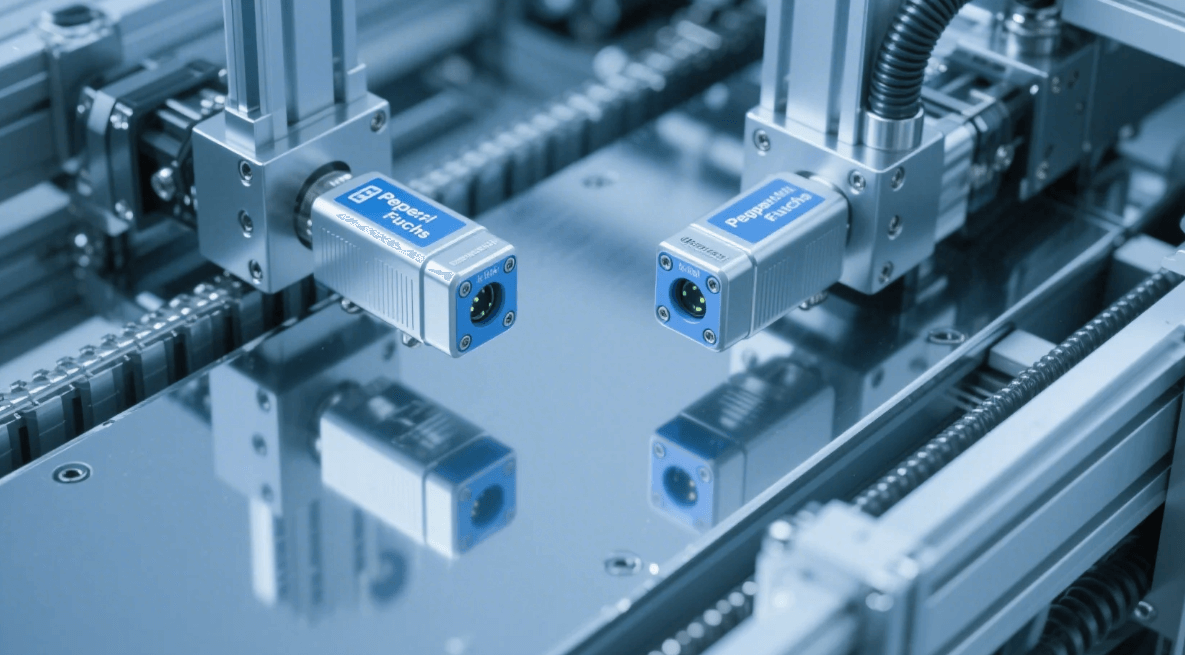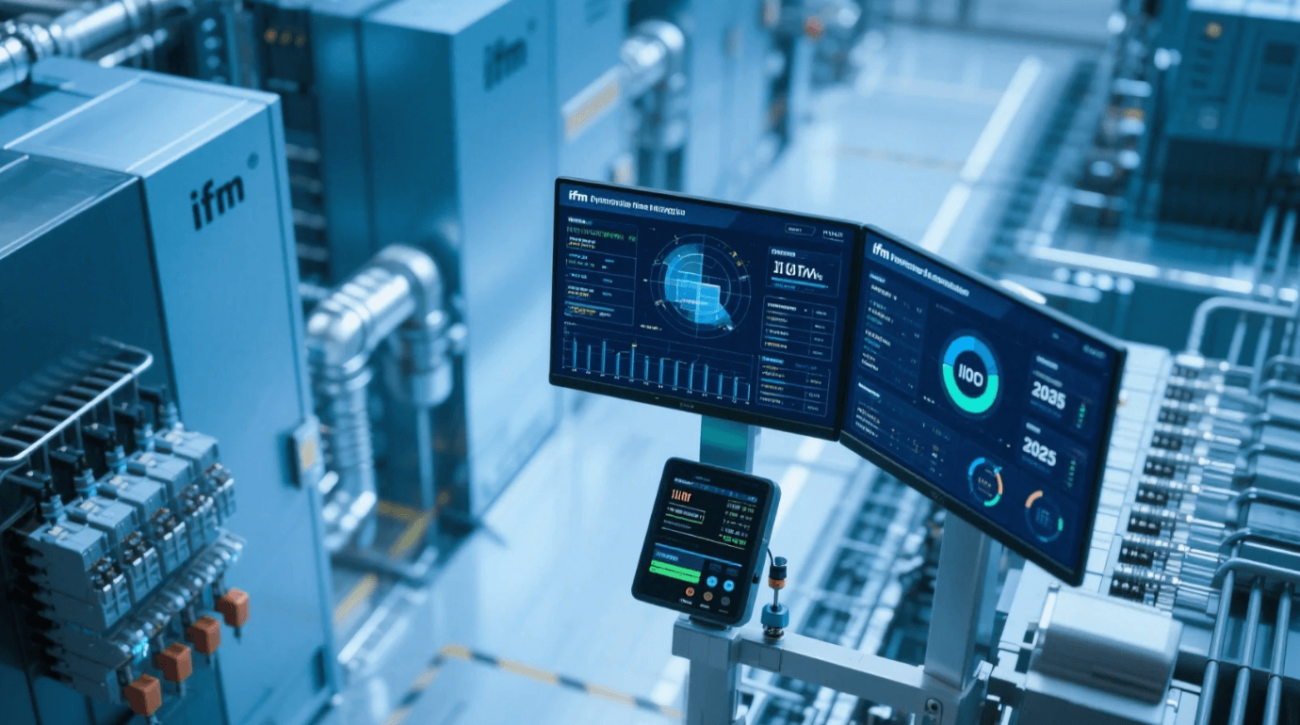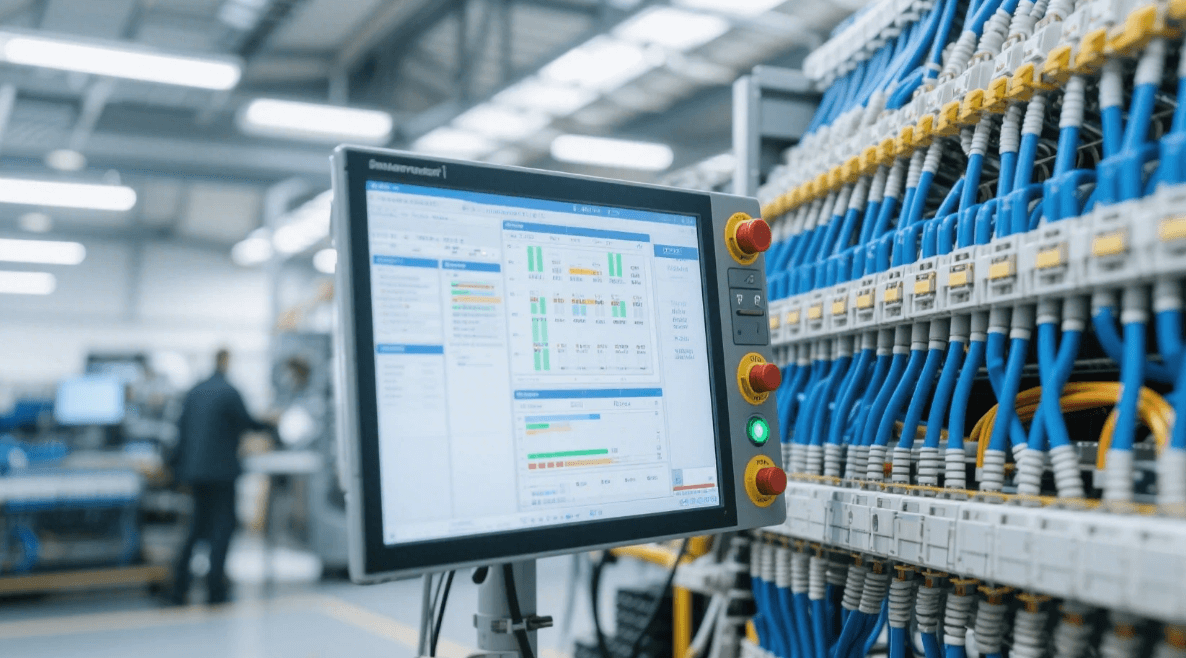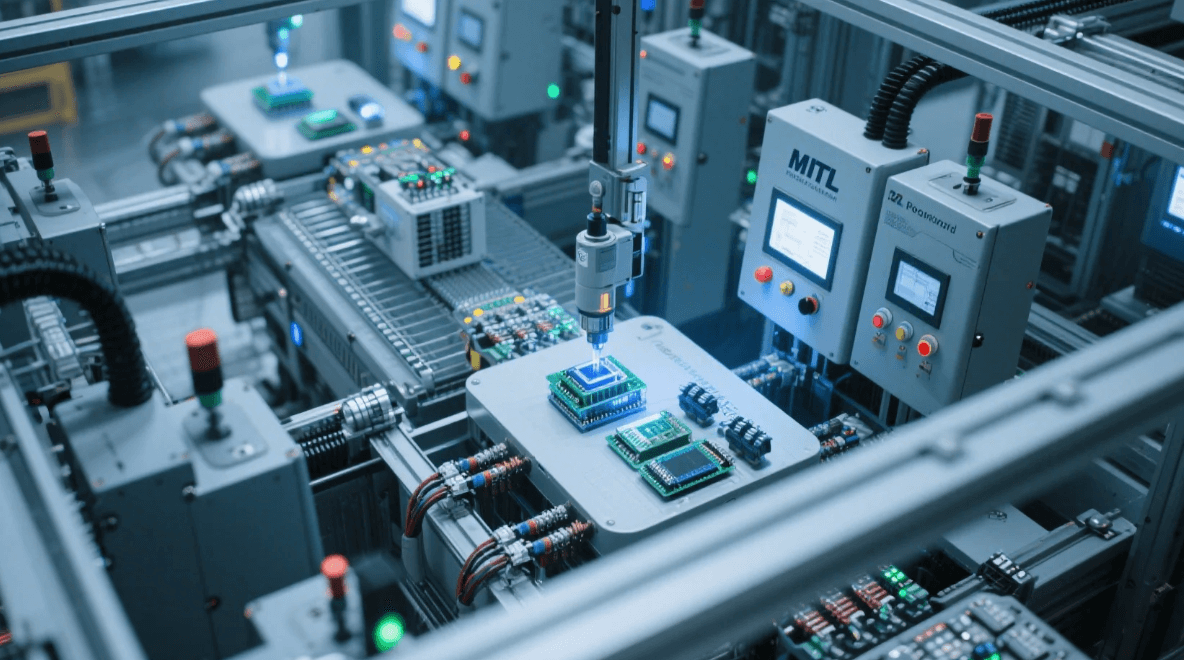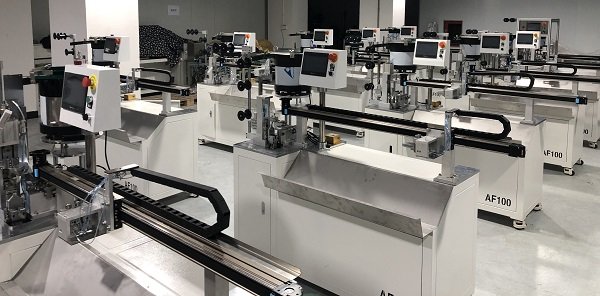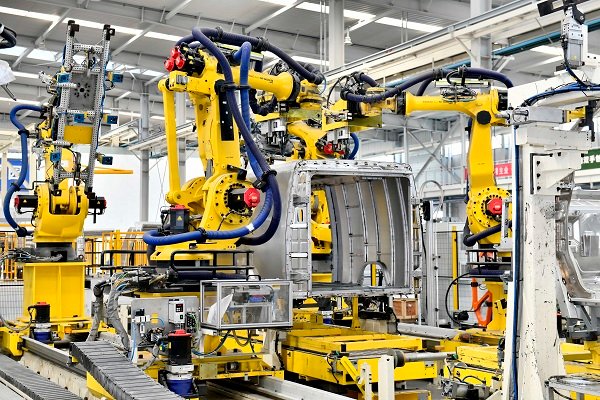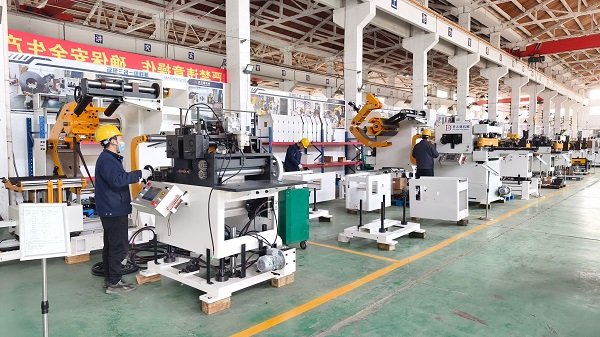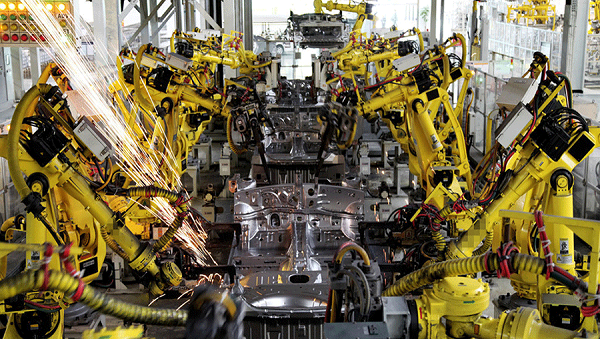Embracing Automation: Unlocking the Future of Manufacturing and Logistics

In the fast-paced world of industrial manufacturing and logistics, Automation has become the cornerstone of progress, shaping the future of production lines, warehouses, and supply chains. As industries seek ways to increase efficiency, reduce costs, and stay competitive, the integration of Automation technologies is proving to be the solution that drives sustainable growth and innovation. This article explores the modern advantages of Automation and its promising future, focusing on its transformative impact on the industrial sector.
The Rise of Automation: A Game Changer for Industries
Over the past few decades, the evolution of Automation has rapidly transformed the manufacturing and logistics sectors. From robotic arms assembling products to intelligent systems managing entire supply chains, Automation has shifted from a luxury to a necessity for businesses seeking to enhance productivity and efficiency.
A Technological Revolution
The advent of Automation technologies, such as robotic process automation (RPA), artificial intelligence (AI), machine learning, and IoT (Internet of Things), has significantly reshaped the way industries operate. In manufacturing, Automation streamlines complex processes, making them faster, more accurate, and more reliable. In logistics, Automation enhances inventory management, order fulfillment, and transportation management, leading to faster delivery times and improved customer satisfaction.
Automation is not just about replacing human labor; it’s about enhancing human potential. By automating repetitive, dangerous, or time-consuming tasks, companies can refocus their workforce on more strategic and creative roles, leading to overall job satisfaction and innovation.

Enhancing Efficiency in Manufacturing and Logistics
At the heart of the Automation revolution lies its ability to enhance efficiency, both in the manufacturing process and throughout the logistics chain. The integration of Automation in industrial environments leads to a significant reduction in errors, waste, and downtime. Let’s take a closer look at the specific benefits Automation brings to manufacturing and logistics:
Increased Productivity
In manufacturing, robots, conveyor belts, and automated machinery work tirelessly, producing goods at a speed and consistency that would be impossible for humans to match. Automation in manufacturing allows for 24/7 operations without fatigue, dramatically increasing output while reducing lead times. Additionally, Automation enables just-in-time production, reducing inventory costs and optimizing resources.
In logistics, Automation in warehouses and distribution centers has transformed how goods are received, sorted, and shipped. Automated guided vehicles (AGVs) and drones are now handling inventory management and stock movement, speeding up processes and reducing human error. This boost in productivity not only helps companies meet growing demand but also improves customer satisfaction with faster deliveries.
Improved Quality Control
One of the most significant advantages of Automation in manufacturing is its ability to ensure consistent and high-quality production. Automated systems are programmed to perform tasks with extreme precision, minimizing the risk of errors or defects. In industries where quality is crucial—such as electronics, automotive, and pharmaceuticals—Automation provides a level of accuracy that is hard to achieve manually
In logistics, Automation plays a critical role in maintaining the integrity of products during transportation. Automated systems track products through the supply chain, ensuring that items are properly handled and conditions are optimal for storage and shipment.
Cost Reduction
While the initial investment in Automation can be substantial, the long-term cost savings far outweigh the initial expenses. Automated systems reduce labor costs, lower the chances of costly errors, and cut down on waste and energy consumption. In manufacturing, machines that can perform precise and repetitive tasks at a much faster rate than human workers significantly reduce production costs.
In logistics, Automation reduces the need for manual labor, which can be expensive and subject to fluctuations in availability. Automated systems can perform tasks like inventory tracking, packaging, and shipment preparation with minimal human intervention, lowering operating costs.
Increased Safety
Automation enhances workplace safety by taking over hazardous tasks that might otherwise endanger human workers. In manufacturing environments, robots and machines handle dangerous tasks such as welding, heavy lifting, or exposure to toxic materials. This reduction in human exposure to hazardous conditions lowers the risk of workplace accidents and injuries.
In logistics, Automation can also improve safety by reducing manual handling of heavy or awkward objects. Automated systems are designed to navigate complex environments, minimizing the potential for accidents and enhancing worker safety.
The Future of Automation: Endless Possibilities
The future of Automation in industrial sectors, particularly in manufacturing and logistics, is incredibly promising. As technologies advance, the scope for Automation will expand even further, unlocking new opportunities for industries to innovate and grow.
Smart Manufacturing and the Internet of Things (IoT)
The next phase of Automation in manufacturing is the rise of smart factories, where interconnected systems and machines communicate seamlessly with each other through the Internet of Things (IoT). Smart factories can monitor and adjust their operations in real-time, optimizing production processes and minimizing downtime.
With IoT, machines will be able to predict maintenance needs before they break down, reducing unexpected interruptions. Furthermore, smart sensors will collect data throughout the manufacturing process, providing valuable insights into production efficiency and areas for improvement.
Artificial Intelligence and Machine Learning
The integration of artificial intelligence (AI) and machine learning (ML) with Automation is set to revolutionize industrial sectors. AI-powered systems can learn from past data, make real-time decisions, and even predict future trends. In manufacturing, AI can optimize production schedules, reduce bottlenecks, and improve demand forecasting.
In logistics, AI can optimize delivery routes and predict traffic patterns, reducing delays and improving delivery accuracy. Over time, AI and ML will make Automation systems more autonomous and capable of handling increasingly complex tasks.
Collaborative Robots (Cobots)
Collaborative robots, or cobots, are designed to work alongside human operators in a shared workspace. Unlike traditional robots that are typically isolated from human workers, cobots are built with safety features that allow them to work closely with humans without causing harm. These robots can assist with tasks such as assembly, packaging, and quality control, enhancing human productivity while reducing physical strain.
The rise of cobots will enable industries to further integrate Automation into their operations without displacing the workforce. Instead, human workers can focus on higher-level tasks while cobots handle repetitive and physically demanding work.
Blockchain and Supply Chain Automation
Blockchain technology is already transforming the way businesses manage supply chains, and when combined with Automation, it promises to further enhance transparency, security, and efficiency. Blockchain can track every stage of the supply chain, ensuring that products are authentic and that shipments are delivered on time.
In logistics, smart contracts enabled by blockchain can automate the entire process of shipping and payment, reducing administrative work and streamlining operations. The integration of blockchain with Automation in supply chains will increase trust, reduce fraud, and accelerate transactions.
The Unstoppable Momentum of Automation
The integration of Automation in manufacturing and logistics is not just a trend but a fundamental shift in how industries operate. The modern advantages of Automation—increased productivity, improved quality, cost reduction, and enhanced safety—are transforming the industrial landscape, providing companies with a competitive edge and paving the way for a more efficient, sustainable future.
As technology continues to advance, the potential for Automation will expand even further, unlocking new opportunities for innovation and growth. For businesses in the industrial sector, embracing Automation is no longer optional but a vital step toward staying relevant and competitive in an ever-evolving marketplace.
The future of industrial automation is bright, and the possibilities are endless. By embracing Automation, industries can not only enhance efficiency in manufacturing and logistics but also unlock new levels of creativity, productivity, and success.
Model:IFM IG5606

